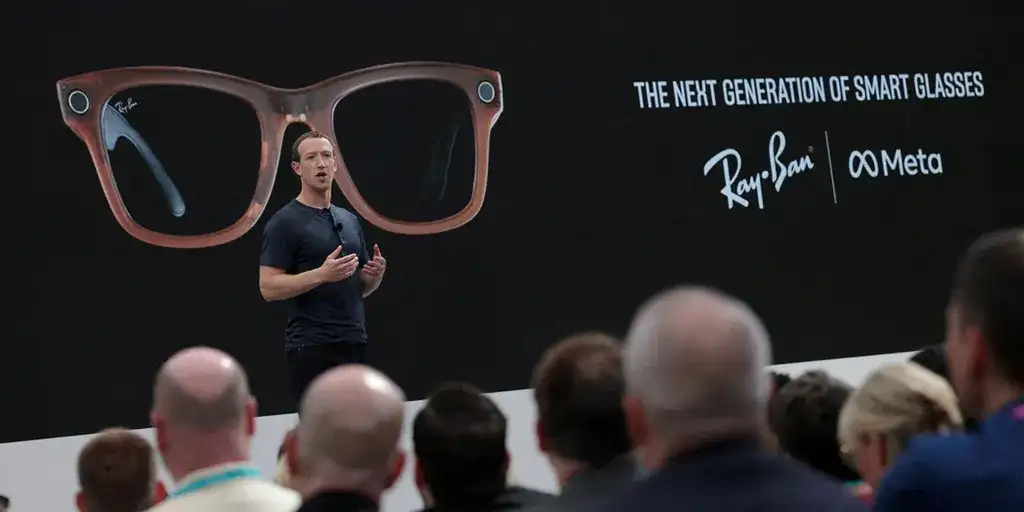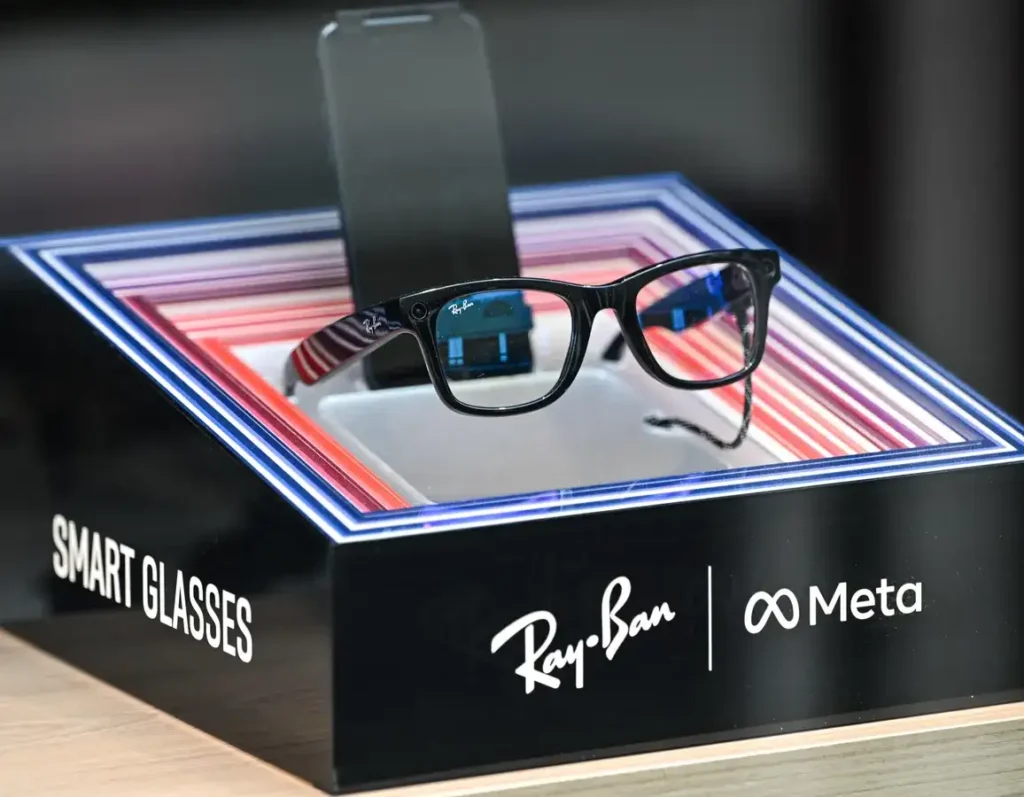Meta’s AI-Powered Ray-Ban Glasses Coming to India Amid Privacy Concerns

Meta is preparing to launch its AI-enhanced Ray-Ban glasses in India, sparking both excitement and controversy. While the glasses promise to blend style with cutting-edge technology, a recent policy update has raised privacy concerns. Meta’s latest decision removes the option to disable voice recording, and the camera now turns on by default. This change has triggered a conversation about the impact on user privacy.
What Are Meta’s AI-Powered Ray-Ban Glasses?
Meta’s collaboration with Ray-Ban has led to the creation of smart glasses that combine the latest technology with sleek fashion. These glasses feature cameras and microphones, allowing users to record videos, take photos, make calls, and interact with AI assistants — all hands-free.

The new version of Ray-Ban Stories integrates Meta’s AI technology, offering enhanced capabilities. However, the recent update forces users to keep the voice recording feature enabled and automatically turns on the camera. Previously, users could disable these features, but Meta has removed that option.
Privacy Concerns: Default Camera and Voice Recording
The most concerning aspect of this update is the mandatory voice recording. Meta has set voice recording as a default function, and users can no longer turn it off. While Meta claims this feature enhances the user experience by enabling hands-free calls and smart assistant interactions, many people worry about the risks to their privacy.
Along with the voice recording, the camera now activates by default. Users must manually disable it if they don’t want to record video. This change raises concerns about covert recordings, particularly in public places. The glasses could accidentally capture private conversations or personal moments without the user’s awareness.

Meta assures users that it will not store the data indefinitely and will process it locally on the device. However, questions remain about the security of this data, who can access it, and whether third parties could misuse it.
What Does This Mean for Indian Users?
India’s expanding tech market makes it an important focus for Meta’s Ray-Ban glasses launch. However, the country has also tightened its stance on data privacy, and this change has raised concerns about how Meta collects and handles user data.
With the glasses’ ability to record both audio and video, they could inadvertently capture private conversations or personal moments without consent. While Meta markets the glasses as convenient, these features pose significant privacy risks, especially when users may not fully understand when the device is recording or what data it is collecting.
The Role of AI and Privacy
AI technology has revolutionized how we interact with devices, but it also raises serious privacy concerns. Ray-Ban glasses powered by Meta’s AI promise seamless experiences, but the default camera and microphone settings could lead to constant surveillance, even when users don’t intend it.
In a country like India, where privacy is a sensitive issue, Meta’s decision to enable these features automatically might alienate many potential customers. This decision doesn’t just raise technical questions but ethical ones as well. Is Meta prioritizing convenience over privacy?
Meta’s Response to Privacy Fears
Meta has responded to these concerns by emphasizing that it will encrypt all data and process it locally on the device, rather than sending it to Meta’s servers. The company claims that users retain control over their data. However, privacy experts argue that this approach doesn’t go far enough. The inability to turn off voice recording and the automatic camera activation have left many users uneasy.
Experts are calling for stronger data privacy protections and clearer transparency regarding how Meta handles personal data. As AI technology continues to evolve, companies like Meta will need to demonstrate greater accountability in how they collect and store user data.
The Future of Smart Glasses and Privacy in India
Meta’s Ray-Ban glasses are part of a larger trend in wearable technology, and as more companies enter this space, data privacy will become even more critical. Consumers will need to stay informed about the devices they use and understand the data policies of the companies behind them.

In India, where data privacy concerns are growing, Meta will face intense scrutiny. The government has already made strides to regulate the tech industry, and Meta will need to comply with these regulations to avoid backlash and potential legal issues.
Striking the Balance Between Innovation and Privacy
Meta’s AI-powered Ray-Ban glasses represent the future of wearable technology, but they also raise crucial questions about privacy and user control. As technology becomes more integrated into our daily lives, companies like Meta must find a way to balance innovation with the need to respect privacy. The growing demand for AI-powered devices makes this challenge even more pressing.
Consumers must educate themselves about the privacy implications of the devices they use. While smart glasses powered by AI offer exciting possibilities, users must carefully weigh the benefits against the risks to their personal data.
As Meta prepares to launch these glasses in India, the company must address privacy concerns directly and work to regain consumer trust. How Meta handles these issues will significantly shape the future of wearable technology.






